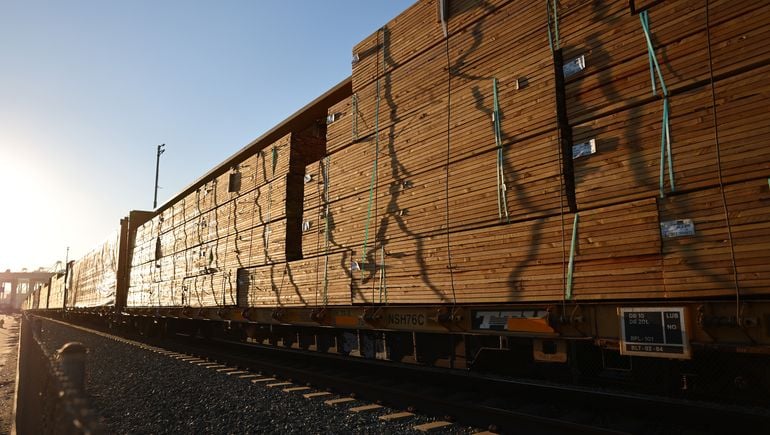Dive Brief:
- The White House on Monday issued final guidance on its Build America, Buy America rules, which aim to boost the amount of domestically manufactured goods, including steel, iron and other construction materials, used on federal infrastructure projects.
- BABA is part of the $1.2 trillion Infrastructure Investment and Jobs Act passed in 2021, but applies to all federally funded infrastructure projects. The Office of Management and Budget issued proposed draft guidance in February and received nearly 2,000 public comments since then.
- The final guidance defines relevant construction materials and local manufacturing process standards for each material. Contractors have previously complained that a lack of clarity around BABA was holding up projects and delaying potential positive impacts of the influx in federal funding.
Dive Insight:
The IIJA significantly expanded standards that require government-funded infrastructure projects to use more U.S.-made products. The BABA preference applies to three categories: iron and steel products, manufactured products and construction materials. OMB expanded the list of materials to include engineered wood but opted to leave out coatings, paint and bricks after reviewing feedback.
To qualify as Made in America, a product must be manufactured in the U.S., with 55% of the cost of its components fabricated domestically.
Under the final guidance, construction materials include:
- Non-ferrous metals.
- Plastic and polymer-based products, including polyvinylchloride, composite building materials and polymers used in fiber-optic cables.
- Glass, including optic glass and optical fiber.
- Fiber-optic cable, including drop cable.
- Lumber.
- Engineered wood.
- Drywall.
Cement and cementitious materials; aggregates such as stone, sand or gravel; or aggregate binding agents or additives are not included. The rules also do not apply to tools, equipment and supplies brought to the jobsite and removed at the end of the project, according to OMB.
There are three cases in which awarding agencies can issue waivers:
- A public interest waiver, if applying BABA would be inconsistent with the public interest.
- A nonavailability waiver, when U.S. manufactured products are not sufficiently available.
- An unreasonable cost waiver, if the use of U.S. materials will increase the cost of the overall project by more than 25%.
The new guidance will take effect 60 days after publication in the Federal Register in the coming weeks.
